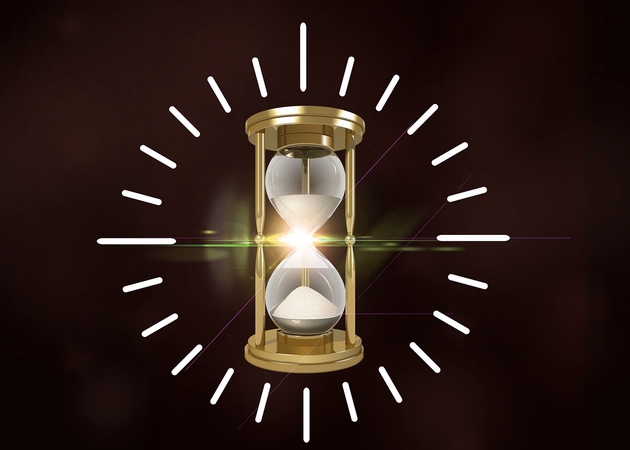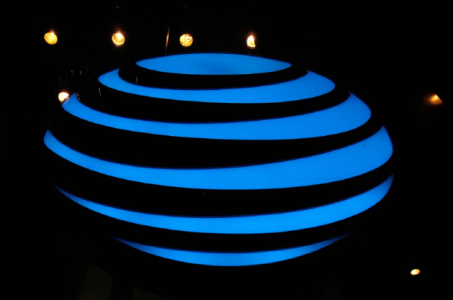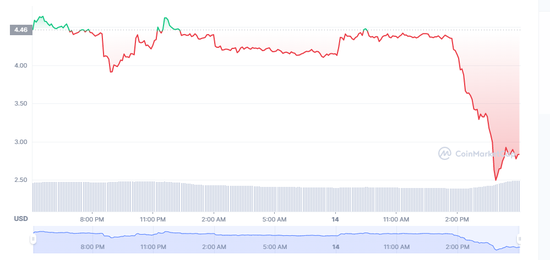your current location is:Home > Finance > NewsletterHomeNewsletter
Unable to stand this "one second", tech giants such as Meta and Google call for the abolition of the leap second system
Every reporter Li Menglin Every editor Lan Suying
We all know leap years, but did you know that seconds can also be "leap"?
The standard time for the earth to rotate once is 24 hours, which is one of the foundations of human timing, but in fact, the speed of the earth's rotation will frequently deviate. According to the timing professional website TimeAndDate.com, on June 29, 2022, the Earth's rotation took 1.59 milliseconds less, the shortest day on record.
1 millisecond is one thousandth of a second. Although it seems insignificant, long-term accumulation will make a big difference between the time system commonly used internationally and the super-accurate "atomic time". Therefore, the International Earth Rotation Service (IERS) is responsible for moving UTC forward or backward by one second at regular intervals, known as leap seconds.
This second is almost imperceptible in our daily life, but it will bring some troubles to the computer and Internet systems that require precise timing. In the late 1990s, because many databases recorded the year with only the last two digits, the change from 1999 to 2000 caused a series of confusions, which is the most famous "Millennium Bug" in computer history. crisis.
At the end of July, engineers from Facebook's parent company Meta (META, stock price of $160.19, market value of $430.518 billion) wrote a blog, calling for the abolition of the leap second system, bluntly saying that the harms outweigh the benefits, Google (GOOGL, stock price $115.13, market value 1.5 Tech giants such as Microsoft (MSFT, $274.82, $2.05 trillion), and Amazon (AMZN, $134.16, $1.37 trillion) have agreed. Official bodies such as the National Institute of Standards and Technology (NIST) and the International Bureau of Weights and Measures (BIPM), which maintains the Metric Convention, also expressed support. Calls for abolition of leap seconds are growing.
 Image source: Photo Network-500487003
Image source: Photo Network-500487003There are two ways of measuring time in science: one is "universal time" based on astronomical measurements of the Earth's rotation, and the other is "atomic time" determined by the period of atomic oscillation. Due to the instability of the Earth's rotation, there will be a difference between Universal Time and Atomic Time, about one second in one to two years.
In order to solve this difference, the 1971 International Conference on Weights and Measures passed a resolution, deciding to adopt a compromise "Coordinated Universal Time" (UTC) for timekeeping. The system is based on the International Atomic Time and includes irregular leap seconds to offset changes in the Earth's rotational speed to ensure that universal time is within 0.9 seconds of atomic time.
The reason for the change in Earth's rotational speed remains a mystery. Scientists have proposed several hypotheses: melting of glaciers causes weight loss at the Earth's poles; movement of the Earth's inner core; seismic activity;
In general, the rotation speed of the earth is constantly slowing down, so since the implementation of the leap second system in 1972, the world has made 27 adjustments, each of which is a "positive leap second" with an increase of one second.
But recently, the Earth's rotation speed has accelerated: On June 29, 2022, the Earth's rotation took 1.59 milliseconds less, setting the shortest day on record; on July 26, the Earth's rotation was reduced by another 1.5 milliseconds. So timing organizations around the world are debating the need to remove a second, ie implement a "negative leap second".
When leap seconds are added, for example, the timekeeping system will display an additional peculiar time of 23:59:60 after 23:59:59 before jumping to 0:00. When a negative leap second is implemented, the timing system jumps directly from 23:59:58 to 0:00.
For computer systems that use the UTC-based Network Time Protocol (NTP), these adjustments can cause some trouble. When the leap second was implemented in 2012, websites such as the online forum Reddit, the professional social networking site LinkedIn, and the restaurant review site Yelp experienced massive paralysis. In 2017, leap seconds caused cloud platform company Cloudflare's computers to mistakenly believe that time had gone backwards, causing some customers to be cut off from service.
Linus Torvalds, the inventor of the Linux operating system, once said, "Almost every time a leap second is implemented, we find a problem. It's really annoying, because it's typical of the kind of code that never runs, so under normal circumstances It has never been user tested. ”
With the growing rejection of leap seconds in the tech world, two engineers at Facebook parent company Meta wrote a blog post on July 27 calling for the leap second system to be abolished.
According to the technology media cnet.com, the three major technology giants Google, Microsoft and Amazon supported Meta's proposal, while official institutions such as the National Institute of Standards and Technology (NIST) and the International Bureau of Weights and Measures (BIPM) also expressed support. Since it is ultimately the government agency that decides the timing system, the statements of these two agencies are particularly important.
"Implementing a new leap second is a risky thing, doing more harm than good, and we think it's time to replace it with a new technology," said Oleg Obleukhov and Ahmad Byagowi, who wrote the article.
They argue that the main beneficiaries of the leap second regime are scientists and astronomers because they observe celestial bodies based on UTC. Without leap seconds to correct UTC, a lot of astronomical observation equipment and software would need to be debugged to continue to align with UTC.
In addition, since the previous leap seconds were all increments of one second, human society has not experienced an adjustment that reduces one second. "The effects of negative leap seconds, which have never been tested on a large scale, could have catastrophic effects on software that relies on timing systems," said the two engineers.
Ahmad Byagowi told cnet.com, "We predict that if we just stick to the IA and don't follow the leap second regime, then at least 2000 will be fine. Maybe then (after 2000) we need to think about it." Fix the time issue."
However, the two still proposed solutions to the trouble caused by leap seconds. This is the method of "leap smear" first proposed by Google, that is, in a relatively long period of time (Meta uses 17 hours) Leap seconds are digested in millisecond increments, significantly reducing disruption to the system. This practice is currently more popular among technology companies.
It is worth noting that there is currently no unified solution to the problem of leap seconds in the world, but many organizations are already studying the problem of leap seconds. The International Telecommunication Union had already commissioned a report on leap seconds in 2015, which is expected to be published in 2023.
Previous:Meta asks judge to force Snap to provide data: Help fend off antitrust lawsuit
Next:Uber sells stake in Indian food delivery platform Zomato, cashing out $392 million, sources say
related articles
Article Comments (0)
- This article has not received comments yet, hurry up and grab the first frame~











